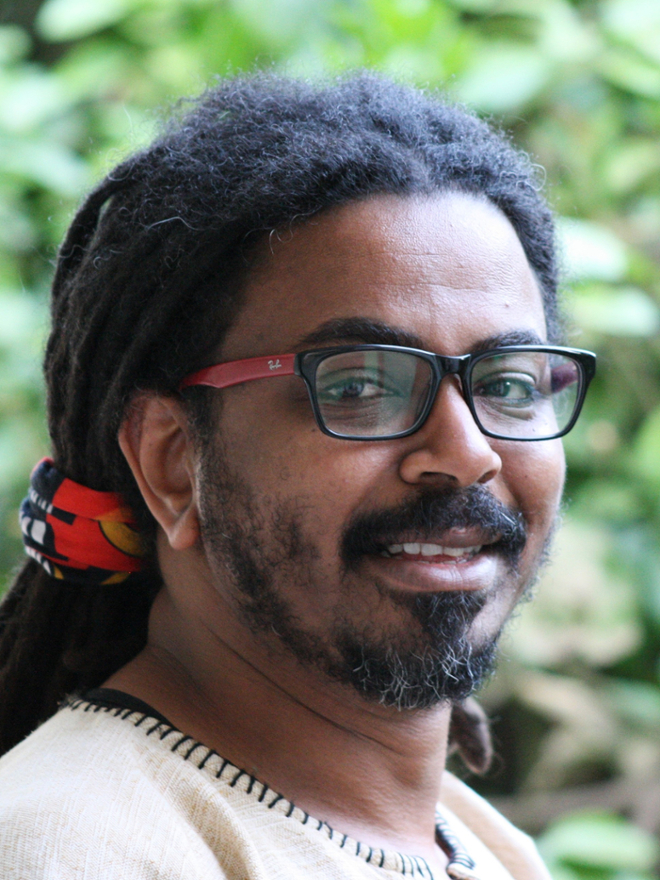Tarig Mohamed, MA COEX’16, shares his passion for gender justice and peacebuilding

Where do you work, and what is your role?
I’m currently the Regional Program Manager for Africa and the Middle East, covering 13 countries, for KARAMA. We promote women's empowerment, ending violence against women, and supporting peace and security processes through women’s organizations and activists in these countries. We also support advocacy and lobbying in high-level regional and international events to reflect women’s priorities. I still use the skills and knowledge I gained from the COEX program on negotiation, conflict analysis, planning, monitoring and evaluation, and more.
Where did you grow up, and how that lead to your interest in peace-building and conflict resolution?
I grew up in Khartoum, the capital of Sudan. Back in the 1990s, we were told repeatedly that South Sudanese are our enemies, and whoever goes and fights them will either win, or will die and then go to paradise as a martyr. It was fascinating to me to see the dramatic shift in the relations between the two conflicting sides after they signed the Comprehensive Peace Agreement in 2005. Yet, it was confusing to see that while the South has become a post-conflict zone, there’s still an ongoing conflict in Darfur and growing unrest in the Northern part following forced migration. That represented almost all the types and phases of conflict in one country at the same time, and that was when I started focusing more on peace-building and conflict resolution.
Why are gender issues important to you?
I focus on gender justice because I truly believe that women and men are born equal. Society divides the roles and gives privileges to men over women.
The UN Security Council recognized that conflicts affect women and men differently since the adoption of UNSCR 1325 on Women, Peace and Security in October 2000. For me, gender justice is the priority not only for achieving sustainable peace, but also for reaching any planned development goals. Gender, and its intersections with race, ethnicity, class, sexual orientation and other social identities, explains the different levels of oppression that each individual goes through.
Furthermore, there are different types of gender-based violence that affect women and girls in Sudan. Women and girls are subject to female genital mutilation, child marriage, sexual harassment, domestic violence and other injustices that are all slowly reducing through continuous pressure by civil society.
What did you gain from your experience at Heller?
I came to Heller with lots of practical experience, but lacking the theoretical part. The subjects that I studied at the COEX program widened my knowledge very much and enabled me to understand and relate the practice to theories. The professors were so kind and welcoming and of course extremely professional and knowledgeable. The diversity at Heller and the ability to interact, study and hear cases from different countries converted my interest from focusing only on Sudan into the whole world. At Heller, I got the opportunity to write and coauthor academic papers about Mexico, Democratic Republic of Congo, Saudi Arabia, Cuba, Rwanda, Guatemala, Sudan and Nigeria. The COEX program also gave me access to become a member of the Program on Negotiation at Harvard Law School.
How has Heller helped your career?
The Master’s degree that I gained from Heller opened up many career opportunities. The degree was also accompanied by the kind efforts from the Heller Career Development Center that started helping me to develop a strong resume, and helped me to strategize my career track. I was offered many interesting jobs right after my graduation, but the most interesting one was to work as the Advisor on Gender and Political Affairs at the Embassy of Sweden in Khartoum. Working in the diplomatic arena in such a senior position was partially because of my experience and connections inside Sudan, but also it was never going to happen without my degree from Heller.
What advice do you have for students looking to make an impact in the world?
Maximize your time at Heller. After graduation, we get stuck in work and don’t have the access to read, write and stay in classes and libraries and enjoy the academic intelligent atmosphere. Listen to different views on the same topic from diverse colleagues and professors, and try to relate and apply these views on your own context. Engage in associations and non-academic activities as much as possible, and start creating change in a smaller community to be able to change the bigger one.
Be open to others, and widen your contacts in all parts of the world. For me, that was a benefit when I was job hunting in different countries—but most importantly, now I have close friends on five different continents.
